Editor’s Note: Second statement given on August 28, 2021 to House and Senate Redistricting Committees.
August 20, 2021
For Immediate Release
For all inquiries, please contact:
Ryan Tolley
Policy Director, CHANGE Illinois
(336) 503-2301
As Illinois lawmakers make plans to fix state legislative maps that reflect the full and complete 2020 Census count, we call upon them to do so publicly and to meaningfully consider the input residents repeatedly have voiced. Transparency and inclusion previously were sorely lacking as lawmakers rushed to approve maps.
We ask lawmakers to do their work in public, and for the public, holding hearings before, during and after any revisions. At the very least, extensive outreach should be conducted to reach the people who live in districts that are overpopulated or underpopulated and whose districts will change because of population problems with neighboring districts.
Concerns we and others raised about the use of American Community Survey projections now have been proven legitimate as the maps rushed through the General Assembly and signed into law by Governor JB Pritzker diluted voting power in a majority Black district on the South Side of Chicago and gave voters in an Aurora district substantially more voting power than any other. The population difference between the two districts is roughly 30 percent, or three times the maximum 10 percent population deviation standard. Additionally, some Latino advocates have said 120,000 to 150,000 Latino residents were missed in the ACS projections. A map cannot be inclusive if it leaves anyone without representation.
“The districts belong to the people,” said Madeleine Doubek, executive director of the nonpartisan nonprofit government reform coalition CHANGE Illinois. “Lawmakers should actively engage community members in a dialogue about how districts can be drawn to better serve the people. They should not simply be told ‘thank you’ and shown the door by elected officials seeking to preserve their power.”
Lawmakers must uphold their statutory duty to hold at least four hearings in each chamber now that census data has been released. These hearings should be well publicized and posted well in advance of the meetings. Illinosians should be granted a two-week period to review changes to maps and to provide further feedback and insight that was not afforded them in the spring.
Revising the maps gives lawmakers the opportunity to fulfill their original promise of creating districts based on the needs of their constituents and the input they’ve received from them. They should not return to a locked room to draw maps based on their own political needs and then introduce the maps mere hours before voting to approve them.
It’s past time to stop the partisan gamesmanship that resulted in maps that do not truly represent Illinoisans, but instead rob people in communities across the state of their chance at fair representation and the ability to participate in state government. We encourage state leaders to be grounded in an open and inclusive redistricting process that puts the interests of people over party and personal interests.
Editor’s Note: Second statement given on August 28, 2021 to House and Senate Redistricting Committees.
